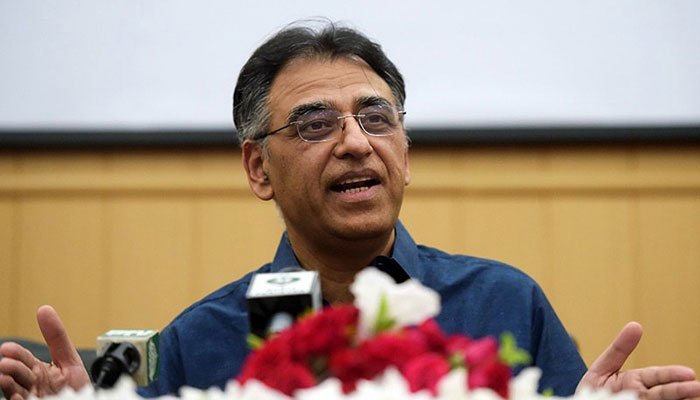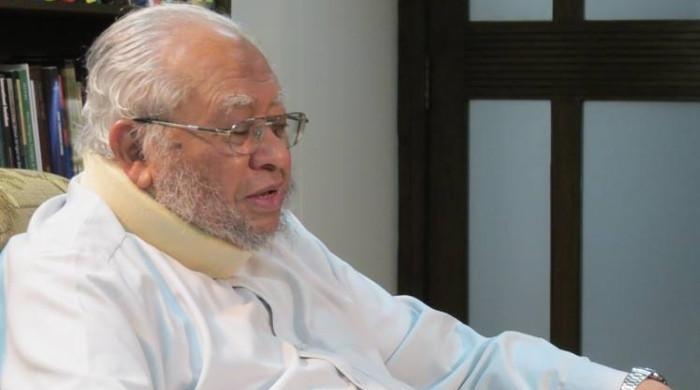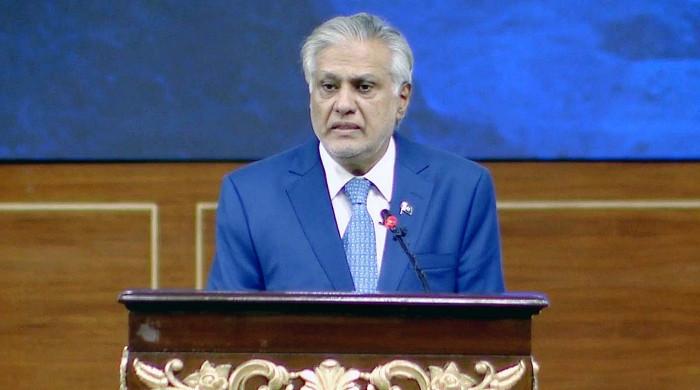Pakistan to begin coronavirus vaccination from next week: Asad Umar
Dr Faisal Sultan says the government-procured coronavirus vaccines would be free for all the citizens.
January 28, 2021

- Asad Umar says coronavirus vaccination in Pakistan will start from next week.
- NCOC has made an integrated plan for the vaccination of COVID-19 patients.
- PM's aide Dr Faisal Sultan says the government-backed coronavirus vaccines would be free for all the country’s citizens.
ISLAMABAD: Federal Minister for Planning, Development, Reforms, and Special Initiatives Asad Umar has said that the coronavirus vaccination in Pakistan will start from next week.
In a tweet on Wednesday, the minister said: "The system for vaccination is in place. Hundreds of vaccination centres in the country will be administering the covid vaccine. Inshallah, the vaccination of front line health workers will start next week."
Read more: Sindh government sets up 14 coronavirus vaccination centres
The National Command and Operation Center (NCOC) has made an integrated plan for the vaccination drive. This plan has been compiled by the federal government in consultation with all stakeholders and provinces keeping in view the best international practices and health guidelines.
According to the details shared by the NCOC on Wednesday, the aim of this vaccination strategy is to vaccinate the people under a system and according to health safety principles within a healthy environment.
Meanwhile, Special Assistant to Prime Minister on Health Dr Faisal Sultan said: "The government-backed coronavirus vaccines would be free for all the country’s citizens."
Speaking during an online workshop, the PM’s aide said that it is the “government’s top-most priority to provide quality healthcare to people.”
How will the vaccination process work?
A National Immunisation Management System (NIMS) will be functional through National Vaccination Administration and Coordination Cell (NVACC) at the national level. This cell has been established in the NCOC.
Read more: Most Pakistanis choose not to get coronavirus vaccine: survey
To support NVACC, besides establishing Provincial and District Vaccination Management and Coordination Cells (PVACC & DVACC respectively), Adult Vaccine Centres (AVC) has also been established across the country.
The NIMS system is based on digital patterns whereas human involvement is limited to ensure its transparency.
This system has been designed on the basis of a specific address to send details of AVC and appointment to registered citizens automatically. After address verification and confirmation of the applicant from the NIMS system, an eight-step procedure for the inoculation would start. The citizens including frontline healthcare workers will send the CNIC number to 1166 through SMS or use NIMS website for registration.
After necessary verification, designated AVC based on the present address and PIN code will be sent to citizens through SMS. After successful verification, the citizen will be vaccinated. Upon vaccine administration, vaccine staff will enter the details in NIMS, and a confirmation message will be sent to the citizen through SMS.
Citizens will stay in AVC for 30 min for post inoculation monitoring. If the designated AVC is outside the current tehsil of the citizen, he/she can change the designated health facility by visiting NIMS web portal or by calling the 1166 helpline within five days of receipt of the first SMS.
Upon availability of vaccine at the designated vaccination Centre, SMS will be sent to citizens to intimate appointment date for vaccine administration.
After successful registration, citizens will visit AVC on the date of appointment along with the original CNIC and received PIN Code (mandatory). Vaccination staff will verify CNIC and Pin Code.
A real-time dashboard highlighting ground-based data would be automatically created through this method for all administrative tiers including federal, provincial, and district health department levels.











